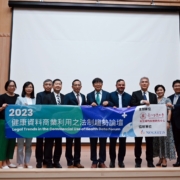【Post-Event Report】Forum on Legal Trends in the Commercial Use of Health Data (First Half)
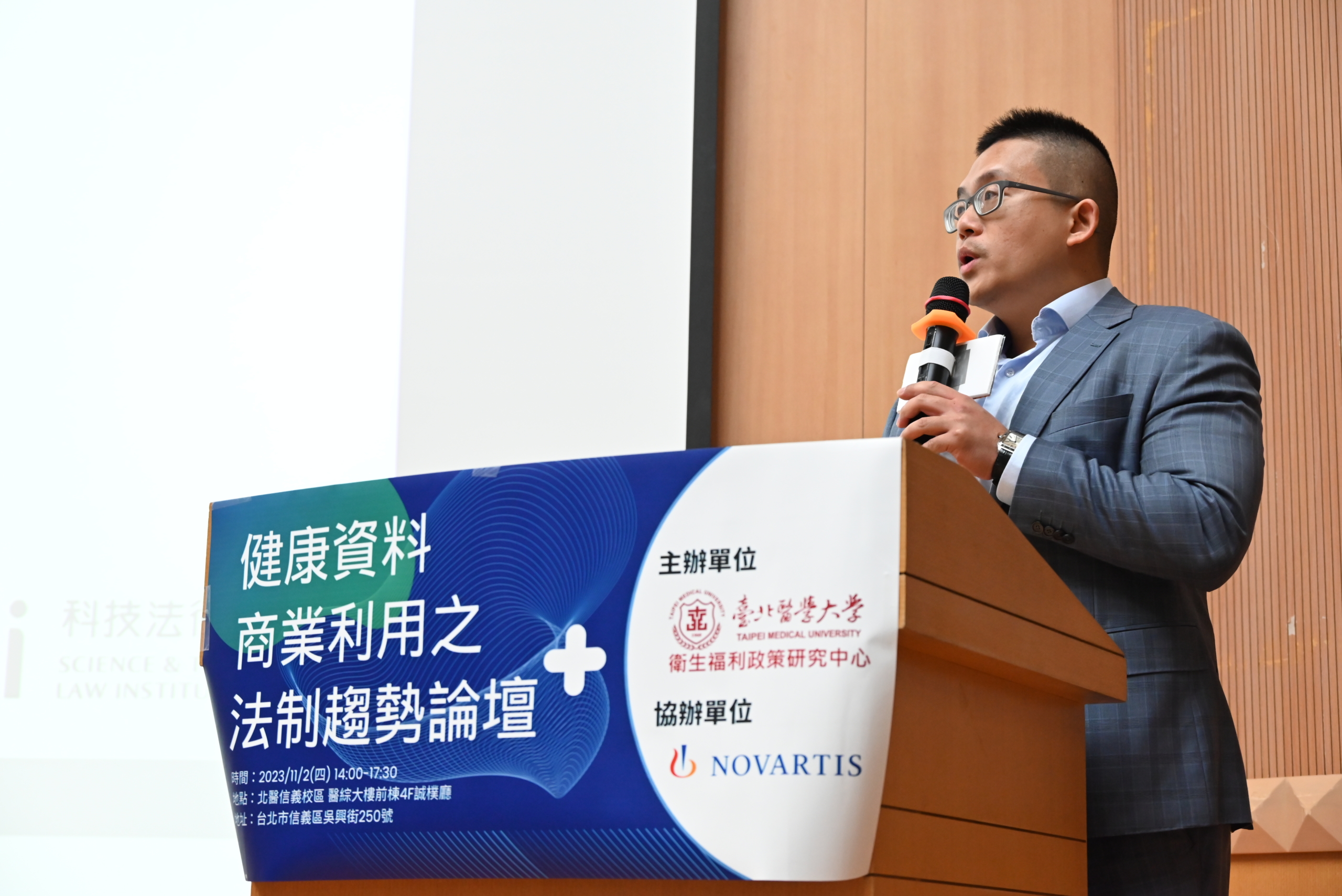
Wang Tz-chong, Director, Institute for Information Industry (III) Digital Transformation Center
With the proliferation of digital and internet-connected devices, the sources of health data have become diverse and voluminous, raising concerns regarding the legal framework. During the forum, he presented four major thematic outlines, delving into the current status and future trends of health data in our country.
Director Wang pointed out that health data sources include biological database information, clinical data, and lifestyle data. These data have become increasingly diverse and voluminous due to the prevalence of internet-connected devices and digitization. This trend is driving innovation in data-driven industries, offering limitless potential for the application of health data in our country.
Director Wang reviewed health data regulations in the United States, the European Union, and the United Kingdom and explored international trends in health data utilization. He summarized regulatory models from various countries, including qualifications, data types, review mechanisms, and exit strategies, to provide an overview of global trends.
Director Wang paid special attention to the legal framework for health data in Taiwan. He mentioned that a recent ruling by the Constitutional Court declared the regulations concerning the National Health Insurance (NHI) database unconstitutional due to the lack of legal retention and exit mechanisms. He stated that amendments must be made within three years and discussed the issue of whether private companies can access NHI data. Furthermore, he emphasized the need for legislation to address the requirements arising from the ruling.
Finally, Director Wang suggested some directions for improving the utilization of health data in our country, including standardizing data formats, clarifying legal interpretations, enabling data portability, and adjusting consent requirements based on purpose and public interest. He believed that the legal framework and governance models of the European Union could serve as references and urged Taiwan to establish clearer regulations and governance for health data utilization to achieve a balance between the public interest and individual privacy. The use of health data is growing globally and requires careful consideration and clear legal regulations. Taiwan should draw from the experiences of other countries to enact appropriate provisions that balance the public interest and individual rights, promote innovation, and ensure the protection of personal privacy.
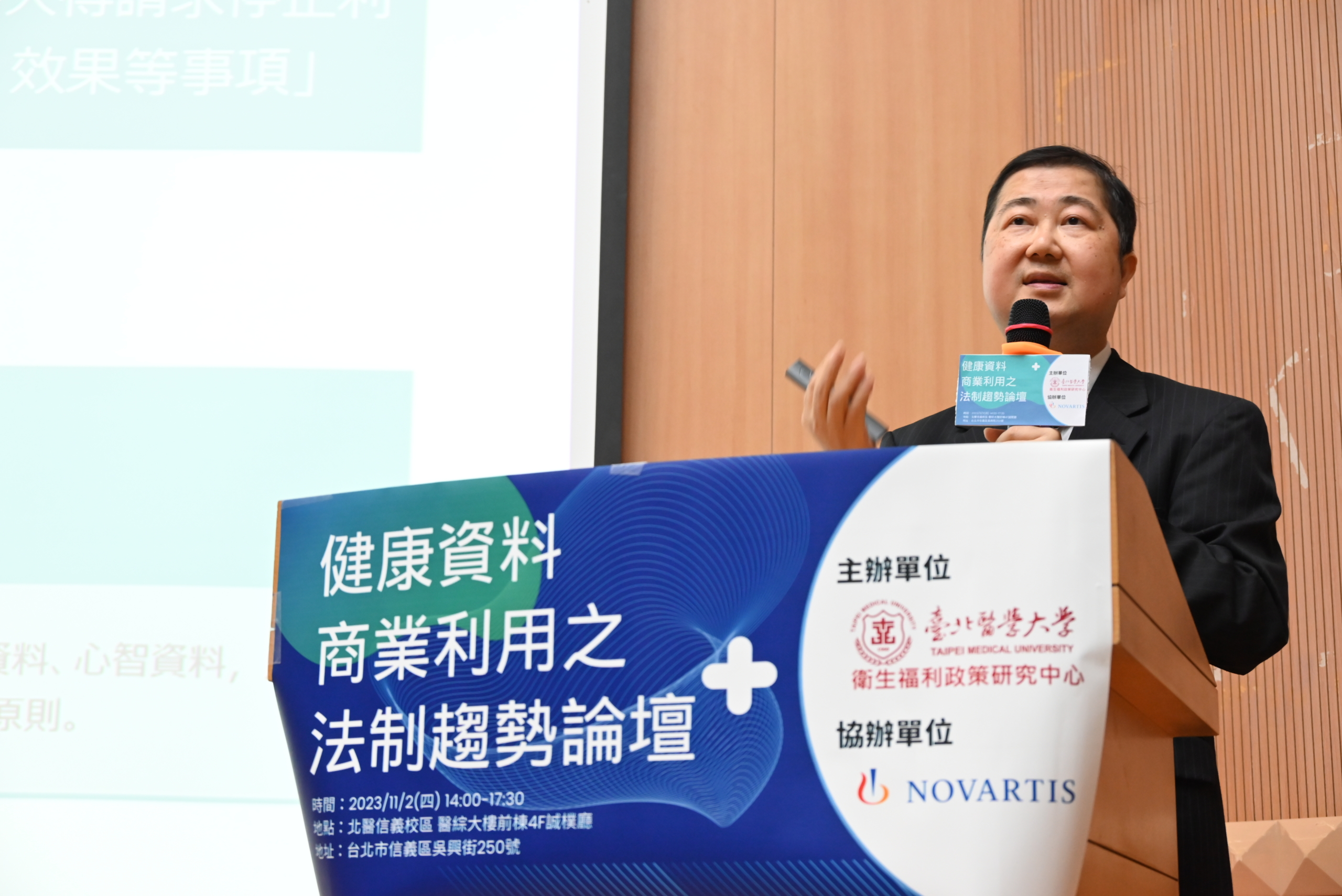
Chen Chih-Hsiung, Dean, College of Science, National Yang Ming Chiao Tung University
Dean Chen delved into the legal issues surrounding the commercial use of biomedical data in this forum, presenting multifaceted legal considerations and recommendations.
Firstly, Dean Chen elucidated the factors to be considered in the commercial use of biomedical data, including individual data privacy, intellectual property, healthcare and pharmaceutical regulations, public sector involvement, and the challenges of consent rights. He pointed out that these factors make the commercial use of biomedical data complex and multi-layered, necessitating careful consideration.
Regarding data ownership, Dean Chen mentioned a case in California, USA, stating that individual privacy rights are not equivalent to data ownership. The court ruled that individuals do not have property rights over derivatives of their data, raising profound philosophical, moral, and religious questions. Dean Chen emphasized that these issues should be addressed by the legislature.
Consent rights as the foundation for commercial use were also discussed, and Dean Chen outlined their advantages and disadvantages. He mentioned a ruling by Taiwan’s Constitutional Court, which called for more explicit regulations regarding consent rights and a graded privacy protection system based on the risks of biomedical data.
Dean Chen further introduced the concept of integrating the public interest with commercial use and presented three testing methods: the Purpose test, Necessity test, and Balancing test. However, he also noted that distinguishing between public and commercial interests can be difficult at times, necessitating transparency and independent oversight mechanisms.
Finally, Dean Chen emphasized the importance of an IP (Intellectual Property) strategy that promotes sharing and access over exclusivity. He encouraged evaluation, transparency, and cross-collaborative learning to improve the sharing of biomedical data.
In summary, the commercial use of biomedical data faces complex legal and ethical challenges, requiring a balanced legal framework to protect individual privacy, foster innovation, and serve the public interest. Dean Chen Chih-Hsiung’s speech provided profound insights and valuable recommendations on this issue.
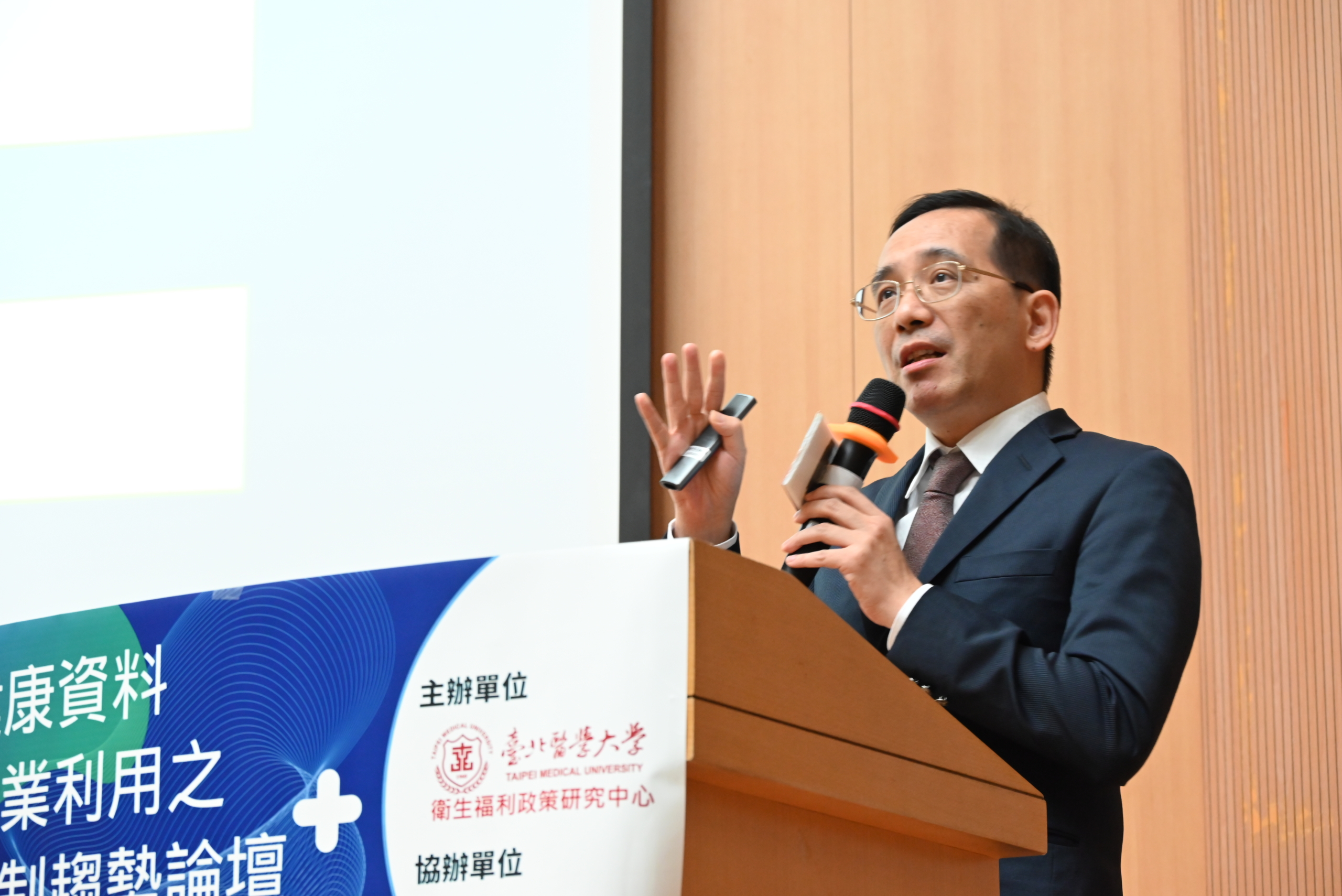
Lee Chung-Hsi, Deputy Director, Health and Welfare Policy Research Center
Deputy Director Lee pointed out that data is valuable when aggregated, rather than individually, and that updatable data holds higher value compared to static data. Additionally, he emphasized that “health data is sensitive and requires special protection.” While this seems to be a common understanding among the public, the underlying premises need clarification.
Defining health data is also a crucial issue. For instance, the research needs for big health data stem from various aspects of life, which may not necessarily be typical health condition data. Another frequently discussed issue is whether data is an extension of personal rights, and if data has been adequately de-identified, is it still considered part of one’s personal rights? Deputy Director Li also mentioned that the European Health Data Space (EHDS) proposed by the EU does not exclude commercial entities from conducting scientific research. The fundamental distinctions between academic research and commercial scientific research are yet to be clarified.
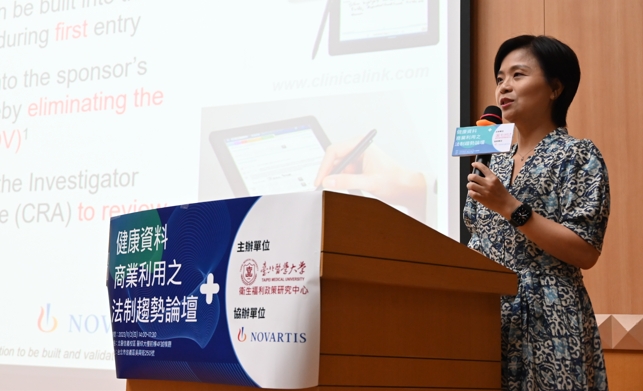
Minister Sun Ting-Ting, Taiwan Novartis Global Drug Development Center, Clinical Research Department
Minister Sun delved into the application of digital tools and data in clinical trials, emphasizing their significance in the field of clinical research during the forum.
Minister Sun first mentioned the latest developments in Taiwan’s regulations related to DCTs (Decentralized Clinical Trials), including the recent guidelines issued by Taiwan’s Food and Drug Administration under the Ministry of Health and Welfare. These guidelines provide regulatory support for the digitalization of clinical trials in Taiwan, helping to facilitate the implementation of DCTs in the country.
Minister Sun further explained the components of DCTs, including electronic informed consent (eConsent), electronic source data (eSource), electronic patient-reported outcomes (ePROs), as well as sensors and wearable devices. These tools and technologies make the collection and management of clinical trial data more efficient while reducing manual data entry, thereby enhancing data quality.
Minister Sun also explored the benefits of achieving a digitalized clinical trial data workflow. She mentioned that digital protocols can make trial designs more flexible and that data analysis techniques such as AI can enhance trial quality. Furthermore, data digitalization can automate trial processes, making data analysis more precise and trial execution more flexible.
Minister Sun Ting-Ting’s speech highlighted the importance of digital tools and data in clinical trials to improve trial efficiency, data quality, and the progress of new drug development. This is a significant milestone for pharmaceutical research in Taiwan and global clinical trials.

